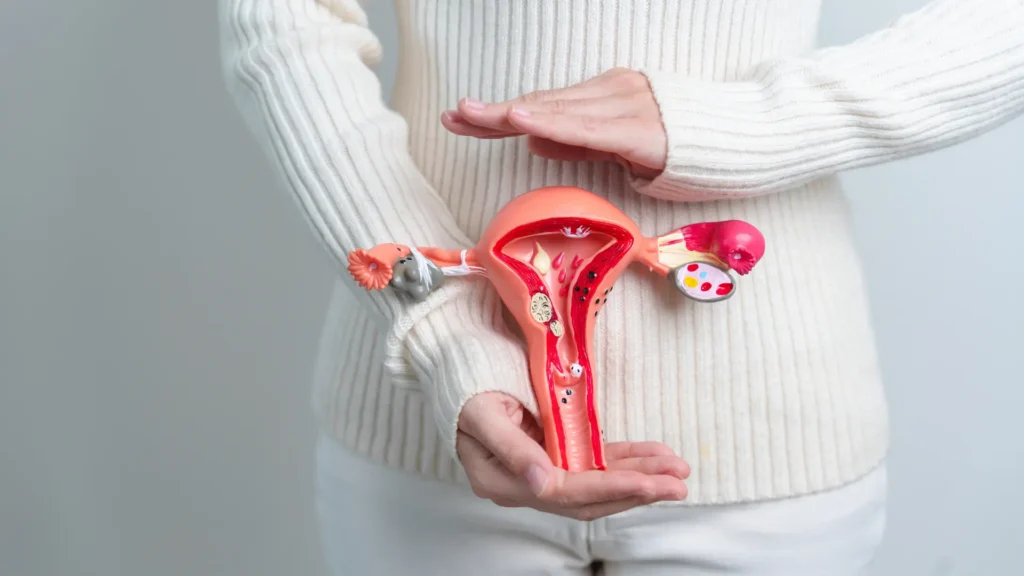The journey of trying to conceive a child is a deeply personal one, filled with hope, anticipation, and a unique bond between partners. For many couples, this journey unfolds as expected. But for others, month after month can bring a cycle of disappointment and growing anxiety, leaving them with an important question: “How long should we keep trying on our own before we seek help?”
My name is Dr. Vrushali Pillai, and as a Senior Consultant in Obstetrics & Gynaecology at Borneo Hospital, Thane – part of the Borneo Hospitals group serving families across Thane, Nashik, Chhatrapati Sambhaji Nagar, and Raipur City – I regularly partner with couples navigating this sensitive path. Please know that if you are facing challenges, you are not alone.
The decision to consult a doctor about Infertility can feel daunting, but it is a proactive and positive step towards getting answers and understanding your options. This article aims to provide clear, evidence-based guidance to replace uncertainty with a clear action plan, helping you understand when it’s the right time to seek professional support.
Understanding the Medical Definition of Infertility
Firstly, it’s important to understand what Infertility means in a medical context. It is not a label of blame or failure; it is a clinical definition based on time, designed to guide couples on when to seek evaluation.
The general rule is that Infertility is defined as the inability to achieve a successful pregnancy after 12 months of having regular, unprotected intercourse.
However, this timeframe is not the same for everyone. One of the most significant factors that changes this recommendation is the age of the female partner, as female fertility potential naturally declines over time.
The General Guidelines: When to Consult a Doctor (Based on Age)
Knowing when to transition from ‘trying’ to ‘seeking help’ is crucial. Here are the widely accepted medical guidelines based on the woman’s age. These timelines are recommended because they allow for timely investigation and treatment when it can be most effective.
- If the woman is UNDER 35 years old:
- Guideline: It is generally recommended to consult a gynaecologist or fertility specialist after one full year (12 months) of trying to conceive without success.
- If the woman is between 35 and 39 years old:
- Guideline: The timeframe is shortened. It is recommended to seek help after six months of trying without success.
- If the woman is 40 years or OLDER:
- Guideline: It is advisable to consult a specialist right away or after just a few months of trying. Due to the significant impact of age on egg quality and quantity, waiting for 6-12 months is not recommended.
The reason for these age-based guidelines is simple: female fertility, particularly egg quality, declines more rapidly after the age of 35. Seeking help earlier in these age groups ensures that no valuable time is lost in diagnosing and treating any potential underlying issues.

“Should We Go Sooner?” – Risk Factors That Warrant an Earlier Evaluation
The timelines above are for couples with no known risk factors. However, you should not wait for the 6 or 12-month mark to seek help if you or your partner have any specific medical history or symptoms that could affect fertility. Consulting a doctor early in these situations is a wise decision.
Reasons for the Female Partner to Seek Early Consultation:
- Irregular or Absent Menstrual Cycles: If your periods are very unpredictable, very far apart (e.g., longer than 35 days), very close together, or if you don’t get a period at all, this is a key sign that ovulation may not be occurring regularly. This warrants an immediate discussion with a gynaecologist. It can be a symptom of conditions like Polycystic Ovary Syndrome (PCOS).
- Known Medical Conditions: If you have a known diagnosis of a condition that can impact fertility, such as PCOS, endometriosis, thyroid disorders (both hypo- and hyperthyroidism), or Pelvic Inflammatory Disease (PID).
- History of Pelvic or Abdominal Surgery: Previous surgeries on your reproductive organs (ovaries, fallopian tubes, uterus), or for conditions like a ruptured appendix, can sometimes cause scar tissue (adhesions) that might affect fertility.
- Very Painful Periods: While some menstrual discomfort is normal, severe, debilitating period pain could be a symptom of an underlying condition like endometriosis.
- History of Recurrent Miscarriages: If you have experienced two or more consecutive pregnancy losses, a medical evaluation is recommended.
- History of Cancer Treatment: If you have undergone chemotherapy or radiation to the pelvic area.
Reasons for the Male Partner to Seek Early Consultation:
- Known or Suspected Male Factor Issues: For example, a previous semen analysis that showed a low sperm count, poor motility (movement), or abnormal morphology (shape).
- History of Testicular Problems: This includes a history of undescended testicles, testicular surgery or trauma, a varicocele (swelling of veins in the scrotum), or testicular cancer.
- History of Mumps in Adulthood: Mumps contracted after puberty can sometimes affect testicular function.
- Problems with Sexual Function: Difficulty with achieving or maintaining an erection or with ejaculation.
If any of these risk factors apply to you or your partner, it is advisable to book a consultation at Borneo Hospital soon after you decide to start trying for a family.
A Team Effort: The Importance of Evaluating BOTH Partners
This is perhaps one of the most critical messages for couples in India. There is a persistent and harmful myth that Infertility is primarily a “woman’s problem.” This is scientifically incorrect and places an immense and unfair emotional and social burden on women.
Let’s be very clear about the facts:
- Approximately one-third of infertility cases are due to factors primarily in the female partner.
- Approximately one-third are due to factors primarily in the male partner.
- The remaining one-third of cases are due to a combination of factors in both partners, or remain ‘unexplained’ after initial testing.
Therefore, Infertility is always considered a couple’s issue. For an effective, efficient, and emotionally fair evaluation, it is essential that both partners attend the initial consultation and participate in the evaluation process. At Borneo Hospital, our approach is always couple-centric. Evaluating just one partner only provides half of the picture and can lead to significant delays in reaching a correct diagnosis and starting appropriate treatment. The support of a partner are vital.
Your First Consultation: What to Expect at Borneo Hospital
Deciding to see a doctor can be nerve-wracking, so knowing what to expect can help ease anxiety. Your first fertility consultation is primarily a detailed conversation.
1. A Comprehensive Discussion:
Your doctor at Borneo Hospital will take a thorough medical, sexual, and family history from both you and your partner. We’ll ask about menstrual cycles, any previous pregnancies, lifestyle factors (diet, exercise, smoking, alcohol), and any medical conditions. Please be open and honest; this information is crucial for us to help you.
2. Initial Investigations (For Her):
Based on the discussion, I might suggest some initial tests. These often include simple hormone blood tests to check if you are ovulating and to assess your ovarian reserve (egg supply), and a transvaginal ultrasound scan to look at the health of your uterus and ovaries.
3. Initial Investigations (For Him):
The cornerstone of male fertility evaluation is a Semen Analysis. This is a simple, non-invasive test that assesses important sperm parameters like count, motility (movement), and morphology (shape).
4. Creating a Personalised Plan:
These first steps are all about gathering information. The results help us create a personalised plan for any further necessary investigations or to discuss potential treatment options.

Lifestyle Factors to Consider While You Are Trying
While you are on this journey, focusing on a healthy lifestyle is always beneficial for your overall well-being and can support your reproductive health. This includes:
- Maintaining a healthy weight (as both being significantly underweight and overweight can disrupt hormones).
- Eating a balanced, nutritious diet rich in whole foods, fruits, and vegetables.
- Engaging in regular, moderate physical activity.
- Finding healthy ways to manage stress.
- Completely avoiding smoking and significantly limiting or avoiding alcohol. However, please remember that lifestyle changes are supportive measures; they cannot fix underlying medical causes of Infertility.
The journey of trying to conceive can be filled with uncertainty. Knowing when to seek help for Infertility is a proactive and hopeful step towards gaining clarity and finding solutions. The key guidelines are to consult a specialist after 12 months of trying if you are under 35, after 6 months if you are between 35 and 39, and almost immediately if you are 40 or older. Crucially, if you or your partner have any known risk factors, seek advice sooner.
Remember, this is a journey you walk as a couple, and evaluating both partners from the start is essential. At Borneo Hospital, my team and I are here to be your trusted partners, providing compassionate, evidence-based care and support. Taking that first step to book a consultation is a sign of strength and commitment to your dream of building a family.



